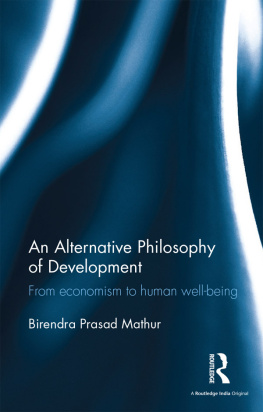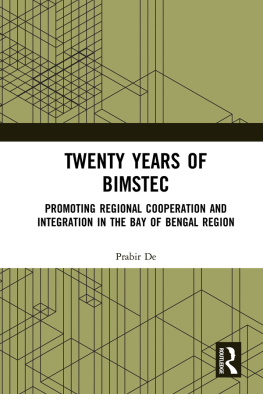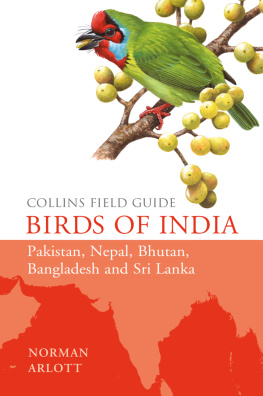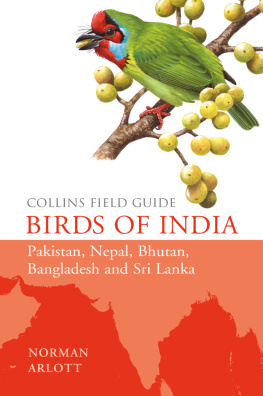Second edition published 2022
by Routledge
2 Park Square, Milton Park, Abingdon, Oxon OX14 4RN
and by Routledge
605 Third Avenue, New York, NY 10158
Routledge is an imprint of the Taylor & Francis Group, an informa business
2022 Filhaal Trust
The right of Pradhan H. Prasad to be identified as author of this work has been asserted in accordance with sections 77 and 78 of the Copyright, Designs and Patents Act 1988.
All rights reserved. No part of this book may be reprinted or reproduced or utilised in any form or by any electronic, mechanical, or other means, now known or hereafter invented, including photocopying and recording, or in any information storage or retrieval system, without permission in writing from the publishers.
Trademark notice: Product or corporate names may be trademarks or registered trademarks, and are used only for identification and explanation without intent to infringe.
First edition published by Manak Publications Pvt Ltd 1994
Print edition not for sale in South Asia (India, Sri Lanka, Nepal, Bangladesh, Pakistan or Bhutan)
British Library Cataloguing-in-Publication Data
A catalogue record for this book is available from the British Library
Library of Congress Cataloging-in-Publication Data
A catalog record for this book has been requested
ISBN: 9781032147246 (hbk)
ISBN: 9781003240747 (ebk)
DOI: 10.4324/9781003240747
Typeset in Garamond
by Arpit Printographers, Delhi
This book was first published in 1994, and an expanded second edition came out in 2000. This expanded edition had two new in this edition). Making these additions, Pradhan H. Prasad had noted in his brief preface that the author has gained new experience and additional facts have also surfaced related to the subject of the book since it was first published, and hence, advancement of scientific knowledge made this revision inevitable.
The author passed away in early 2001. Since then the book has been out of print. There are two reasons for bringing out a fresh edition now. First of course is the renewed interest in Marx and Gandhi in the wake of the formers bicentenary and the latters 150th birth anniversary. But the more important one is the hollowness of all the claims of development, modernity and scientific & technological progress that has been made starkly apparent by the Covid-19 pandemic, which is nothing but a product of the predatory growth the world has seen, particularly during the last four decades, marked by massive loss of forests, habitat and livelihood, thus bringing human beings in contact with the virus carrying wild species leading to one pathogens after another. A not unrelated catastrophic consequence of this growth process has been that the last three decades have generated no less than half of all the greenhouse gases that are now there in the atmosphere.
Even before Covid-19 struck, the world was already in a state of WHO declared global health emergency with life expectancy in decline in the USA and other rich countries which were also undergoing a resurgence of diseases related to poverty and exploitation, diseases that were thought to have been overcome centuries ago. Overuse of antibiotics, particularly by global agribusiness, was leading to another health crisis, with the dangerous growth of superbugs causing increasing numbers of deaths, which by mid-century are projected to surpass annual cancer deaths.
Naturally, questions like what after capitalism, or capitalism has failed, what next were being asked even before the outbreak of Covid-19 with more than 60 percent of the worlds employed population, some two billion people, working in the informal sector, about 70 percent more than those in the formal sector, and the world witnessing the most extreme inequality in human history, accompanied by mass unemployment, underemployment, precariousness, poverty, hunger, wasted output and lives as John Bellamy Foster has put it (Monthly Review, February 2019).
Not surprisingly, socialism is back in fashion with some 51 percent of Americans aged 18-29 having a positive view of it, according to a Gallup survey, as the Economist (February 16, 2019) reported. In fact, the spectre of socialism had started haunting the powers so much that the US President Donald Trump made it a point to declare in his State of the Union Address (February 5, 2019) that America would never be a socialist country!
What the Covid-19 crisis has once again made apparent is that the way the world is producing and consuming can continue only at the peril of humanity and the planet even as it is certain that once the pandemic is overcome, it will be back to the same predatory practices. However, the questions that this pandemic has thrown would remain, and to answer some of them, this book could provide insight, particularly in the context of India and other similarly placed societies.
When this book was originally published, it had provoked a limited, but interesting debate with one reviewer taunting the author of trying to arrange an impossible marriage between Gandhism and Marxism. Some others thought, obviously incorrectly, that he was turning Gandhian after being a Marxist all through his life, and had heated exchanges with him, for instance in the pages of Filhaal.
Seldom was the core idea of the book appreciated that it was impossible to bring development in countries like India on capitalist lines. Defining development as the progress of society towards its stated ideals, ie, in the Indian case, the overcoming of unemployment and poverty, the author had argued that both Gandhi and Marx believed that development of societies like India was incompatible with capitalism since it can never solve the problem of unemployment, and the concomitant alienation.
What the author had done in this work was to unravel the dynamics of capitalist development, critically assess the socialist experiment in charting out a course of development different from capitalism, bring out the contradictions in the post-Independence development process in India, evaluate other efforts outside the state towards ushering in development, and then propose an alternative path of progress, which will take the country out of the dependency paradigm of imperialism. This alternative was an employment based ecologically sustainable model of decentralized development based on local resource endowment and heightened mass consciousness of the people.
The book was written when Economic Reforms initiated in 1991 were still unfolding. The Congress-led Government which lacked even a simple majority was pushing India deeper into the dependency paradigm, and in the process, robbing the masses of even the modicum of a dignified existence. It is now almost a quarter century since the book was written. Till then, the experience of only a couple of years of reforms was available. It is now almost three decades since the reforms began, which later on came to be referred to interchangeably with attractive sounding phrases like globalization and privatization.








